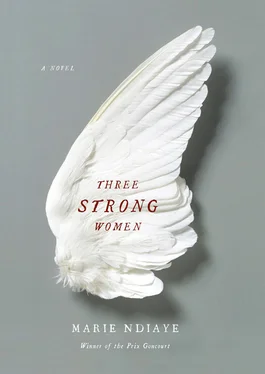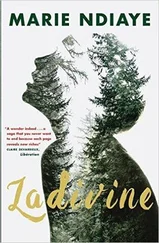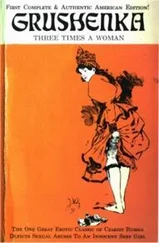Besides, if he wanted (but did he really?) to be straight with himself, he thought, looking up again at the distant sunny outline of the chateau, which he sensed more than actually saw, knowing it so well that he often dreamed about it, in the course of those monotonous, cold, gray dreams he regularly had, full of precise details of which he could only have heard secondhand, though he’d no memory of doing so, from Mummy, who had perhaps filled in once or twice for the previous owners’ cleaning woman (the maid who did everything, preparing and serving the meals, the vacuuming, the ironing), and passed on her observations in that tiresome and degrading way Mummy had of feigning to scorn everything she described (the many unused fully furnished rooms, the fine china, the silver) while her droopy little pinkish eyes shone clear with frustrated longing — and now his own limpid pale eyes were once again raised toward the outline of the chateau as if that large, drab, cold house (no longer gray, perhaps …), as if it ought to be sending him any moment some resounding and definitive answer, but what could the property possibly have to tell him except that it would never be his or Fanta’s or Djibril’s, so, if he wanted to be straight with himself …
“By the way,” he said, “what if I picked Djibril up from school this evening?”
“If you like,” she replied, with an undertone of disquiet in her bland, cold voice that immediately set his teeth on edge.
“It’s been a hell of a while since I last picked him up from school, hasn’t it? He’ll be pleased not to have to catch the school bus for once.”
“Oh, I don’t know, but yes, if you like.” Her voice was wary, constrained by anxious calculation. “Make sure you get there early, otherwise he’ll already have gotten on the bus.”
“Yes, yes.”
… straight with himself, but if he’d really wanted to be straight with himself, he had to admit he wouldn’t have believed in Fanta’s sincerity, even having suddenly noticed in her voice those honest, genuine former tones of the young woman with winged feet and passionate, focused aspirations whose determination and intelligence had already taken her from the small peanut stall that as a little girl she set up every day in a Colobane street to the Lycée Mermoz, where she went on to teach French literature and prepare the children of diplomats and wealthy businessmen for the baccalaureate, this tall, upstanding woman with a domed head and close-cropped hair who’d looked him straight in the eye with completely uninhibited ease when, on an impulse, very unusual for him, he’d stroked the delicate, quivering skin between her shoulder blades lightly with the tip of his finger, something that he’d never before even …
“Fanta,” he breathed, “is everything all right?”
“Yes,” she said, cautiously, mechanically.
It wasn’t true. He knew it, he could feel it.
He couldn’t believe what she said anymore.
He nonetheless persisted in asking questions that to his mind demanded honest answers — intimate questions, questions about feelings — as if the stubborn frequency with which he conducted these interrogations might one day wear down Fanta’s current determination not to let anything slip and drop her guard.
“I’m taking Djibril to sleep at Mummy’s place tonight,” he said abruptly.
“Oh no,” she moaned, almost sobbing, unable to contain herself. Rudy felt pain gripping his heart for having made her so upset, but what else could he do?
Should he deprive Mummy of the company of her only grandchild simply because Fanta couldn’t stand being separated from him?
What else could he do?
“She hasn’t had him over much for quite a while now,” he said in a kindly, comforting tone that sounded in the earpiece so deceitful to him that he pulled the receiver away from himself in embarrassment, as if someone else, who ought to be ashamed at disguising his hypocrisy so badly, had said it.
“She doesn’t like Djibril!” Fanta blurted out.
“What? You’re completely mistaken, she adores him.”
He was speaking cheerfully and forcefully now, even though he didn’t feel in the least cheerful or forceful, not in the least bright eyed and bushy tailed, having emerged from the melancholy, depressing, and painful dream (but a dream curiously not without a glint of hope) that every conversation with Fanta now resembled.
The sonorous tones of cheerful prattle from times past floated around them.
He could discern their obscure chirping and — as his skull throbbed and the hair stuck to his forehead in the stifling heat of the phone booth — it made him nostalgic, as if he had happened to hear a recording of deceased old friends, loving, very dear friends of old.
“Oh god of Mummy’s, oh good little father who’s done so much for Mummy, if she’s to be believed, grant that Fanta …”
Even if he’d never paid much attention to Mummy’s pious enthusiasms — greeting her professions, prudent signs of the cross, and muttered invocations with a perpetually irritated, ironic smirk — he’d retained, almost in spite of himself, as a result of hearing it said so often, that the moral rectitude of a prayer was the necessary, if insufficient, condition of its fulfillment.
Where was that quality in what he was asking for?
“Mummy’s nice little god, compassionate father, I beg you …”
Where was it, his honesty, he wondered, from the moment he knew (or a second Rudy within him did: a younger, sterner, more scrupulous Rudy, a Rudy as yet unspoiled by setbacks, by want of understanding and compassion, and by the need to cobble together good reasons and poor excuses for himself), where was it, the truth of the soul, he wondered, knowing full well that in proposing to take Djibril to Mummy’s for the night, he wasn’t thinking about Mummy, that uppermost in his thoughts wasn’t any concern for her pleasure and happiness, but solely his own peace of mind in thereby preventing Fanta …
Because, surely, she’d never run away without the boy — or would she?
He could only judge from what she’d done before, but if, that first time, she’d taken Djibril with her, had Manille asked her to?
Why would Manille have wanted to be saddled with the child if there’d been any chance that Fanta would have abandoned Djibril to his father’s custody?
No, no, she wouldn’t leave without Djibril. Besides, the boy was afraid of his father, and Rudy, in a sense, was afraid of him too, because the child, his own son, didn’t like him, even if, in his young mind, he was unaware of the fact, and furthermore he didn’t like the house, his father’s house …
A fresh surge of anger was threatening to drown out all rational thought. He wanted to shout into the receiver, “I’ll never forgive you for what you’ve done to me!”
He could just as well have shouted, “I love you so much, there’s no one else I love in the whole wide world, everything must go back to what it was before!”
“Okay, see you this evening,” he said.
He hung up, downcast, exhausted, and feeling stunned, as if — after a long, melancholy, agonizing dream — he had to adjust his consciousness to the ambient reality, a reality that for him, he thought, was itself frequently just a cold, interminable, unchanging nightmare; it seemed to him that he moved from one dream to another without ever finding the exit, some sort of awakening that he modestly saw as putting things in order, as organizing rationally the scattered elements of his existence.
He left the phone booth.
It was already the hottest hour of the morning.
A glance at his watch informed him that he’d be later than he’d ever been before.
So what, he said to himself, annoyed, though slightly anxious at the prospect of finding himself once again face-to-face with Manille.
Читать дальше












